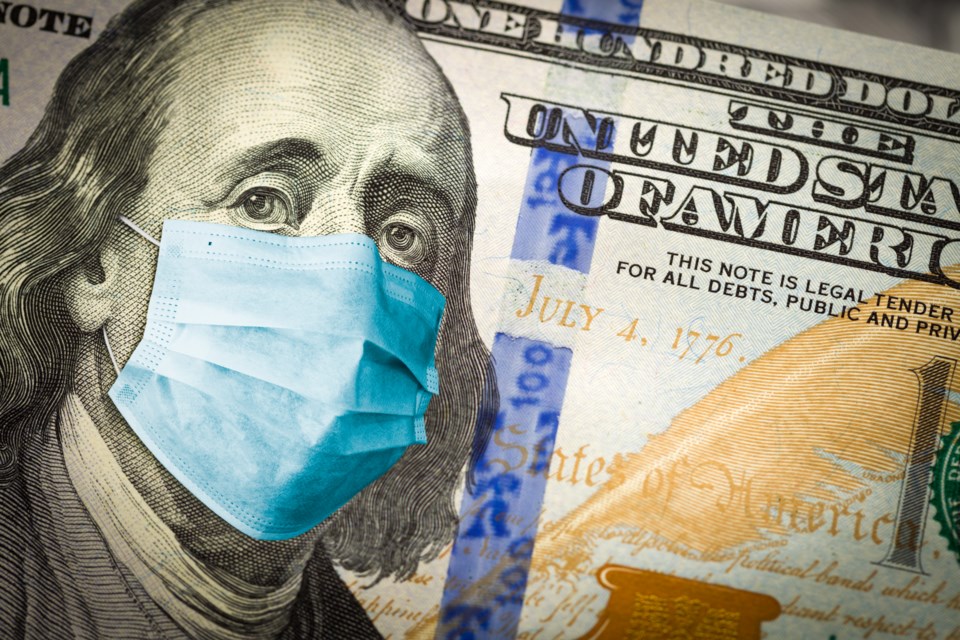Editor’s note: This story was originally published by The Denver Post and was shared via AP StoryShare.
***
Colorado transportation leaders have shifted a raft of road projects and other initiatives off the back burner, while officials at metro Denver's transit agency are eying the possibility of reversing some of the nearly 400 layoffs they plan to carry out this month.
Both moves would use hundreds of millions of stimulus dollars coming from the federal government as part of the coronavirus pandemic relief package signed into law last week by President Donald Trump. Besides the Colorado Department of Transportation and the Regional Transportation District, Denver International Airport also is expected to receive money to help offset its continuing pandemic-induced losses.
CDOT is farthest along in deciding how to spend $134.3 million it anticipates receiving.
The state Transportation Commission convened Monday in a special meeting to approve a project list that was compiled quickly over the holidays to spread the money across the state. In some cases, it will reactivate priority-list projects that had fallen victim to funding shortfalls caused by the pandemic.
"Because of our 10-year transportation plan, CDOT has a great ready-to-go list of projects across the state that allows us to commit new dollars quickly and transparently," said Karen Stuart, the commission's chair, in a statement.
RTD and DIA, meanwhile, don't know how much they'll receive.
The $900 billion federal package most prominently directs new aid to businesses and $600 checks to most Americans. The bill also includes $14 billion for urban transit agencies, $10 billion for state transportation departments and $2 billion for airports, with some of the latter amount intended to help concessionaires.
It's the federal government's second major pandemic aid package, following last spring's $2.2 trillion CARES Act.
That package included approval for up to $232 million for RTD and $269 million for DIA, helping each to weather drastic dropoffs in ridership or passenger traffic as well as tax revenue.
Heading into 2021, RTD leaders said they couldn't forestall job cuts any longer.
It's unclear how many layoffs the new aid might avert, but RTD leaders also cited the need to reduce the labor force to match continuing lower ridership — an imperative that may make a large reversal unlikely. RTD notified affected operators and other union workers last month, while notices to non-union employees are set to go out this week, spokeswoman Marta Sipeki said.
Still, RTD is likely to receive a sizeable boost. The TransitCenter, a New York City-based research and advocacy organization, projected RTD’s service area would net $207 million under the Federal Transit Administration’s formula, while another transit expert estimated the Denver area’s take in a broad range from $120 million to $230 million.
Sipeki said RTD anticipates hearing a concrete figure, along with rules for the money's use, later this month.
"We are optimistic it will help us in retaining some of our frontline employees," she wrote in an email Monday. "We cannot discern specific numbers of employees at this time; however, this funding allows us to provide supplemental service on some of our busier bus routes as we continue to assess our ridership and opportunities to better optimize our service levels."
CDOT, which didn't receive a big relief check last spring, will spend some of its new stimulus money in each of its five regions. Most will go to specific projects, including the repaving of portions of state and federal highways. The largest allocation, $25.5 million, will help pay for the construction of a new interchange at Powers Boulevard and Research Parkway in Colorado Springs.
Some projects that will benefit transit, bicycles and other modes of transportation are in the mix.
The Denver-centric Region 1 is set to receive $46 million, with $9.7 million earmarked for maintenance of noise walls. The rest will go to local projects to be selected by the Denver Regional Council of Governments.



